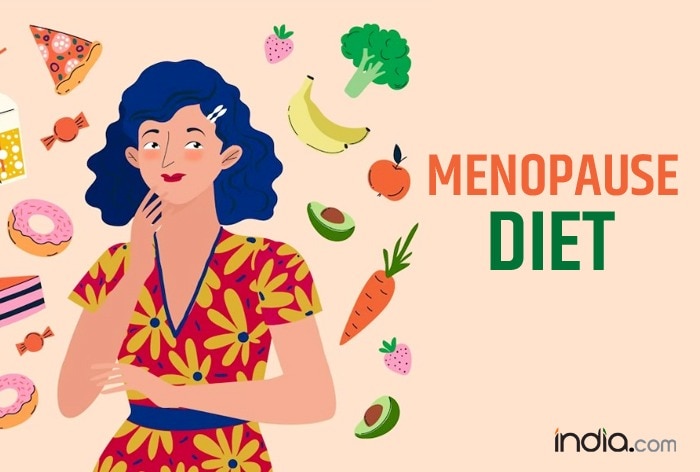Menopause is a different experience for different women, and much of it is based on our lifestyle.
Menopause Diet: Menstrual cycles are an integral part of every woman’s life and there’s a whole different level of bonding about those cramps. Whether it’s winter, summer, or spring, there’s never a good time for periods. Mood swings, hot flashes, trouble sleeping or cravings, we all have different stories built around those seven days in our lives each month. Everything stops at some point, just like our menstrual cycles. However, this transition to the high also carries certain symptoms, certain pains and requires a certain lifestyle to smooth the transition.
Menopause is the stage in which a woman completes 12 months without cycles since her last period. During this transition, estrogen production decreases, affecting health, bone density, and much more. Therefore, to manage these symptoms or side effects, nutritionist Lovneet Batra shared how including these essential foods in her diet can help alleviate the symptoms of menopause.
Diet for menopause: What to eat during menopause?
- High protein diet – Regular protein consumption throughout the day can help prevent the loss of lean muscle mass that occurs with age. Therefore, women going through the menopause should eat more protein, around 1.2 g/kg of ideal body weight (60-75 grams of protein) and for each meal add 20-25 grams of high-quality protein. Protein-rich foods include meat, fish, eggs, legumes, nuts, and dairy.
- Consume omega-3 fatty acids – According to Batra, research shows that omega-3s can decrease the frequency of hot flashes and the intensity of night sweats. Foods rich in omega-3 fatty acids include oily fish (mackerel, salmon, and anchovies, and seeds such as flax seeds, chia seeds, and sabja seeds).
- Eat a diet rich in calcium, vitamin D, magnesium, and vitamin K. Hormonal changes during menopause can cause bones to weaken, increasing the risk of osteoporosis. Therefore, increase your consumption of dairy products (yogurt, cheese and milk), lentils, pseudocereals (amaranth), nuts and seeds.
- Add foods that contain plant estrogens -Phytoestrogens are natural plant compounds that can mimic the effects of estrogen in the body. Therefore, they can help balance hormones. Foods rich in phytoestrogens include soybeans and soy products, tofu, tempeh, flaxseeds, chickpeas, and peanuts.
- Comprehensive diet: Helps prevent the risk of other chronic diseases such as heart problems, cancer, etc. Brown rice, barley, quinoa.
- Fruits and vegetables: Fruits like berries, apples, and cruciferous vegetables are rich in antioxidants and other essential vitamins and minerals.
While the experience of the menopausal transition is different for everyone, some have more drawbacks, others may have a fairly easy transition, it is important to have a healthy lifestyle. What we eat, how much meat we eat, and how we live affects our body and the internal transitions that occur. So ladies, it’s time to upgrade your diet!
$(document).ready(function(){
$(‘#commentbtn’).on(“click”,function(){
(function(d, s, id) {
var js, fjs = d.getElementsByTagName(s)[0];
if (d.getElementById(id)) return;
js = d.createElement(s); js.id = id;
js.src = “//connect.facebook.net/en_US/all.js#xfbml=1&appId=178196885542208”;
fjs.parentNode.insertBefore(js, fjs);
}(document, ‘script’, ‘facebook-jssdk’));
$(“.cmntbox”).toggle();
});
});
